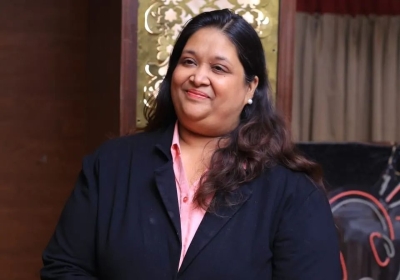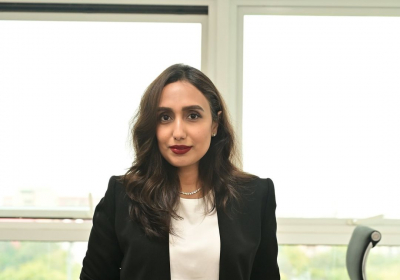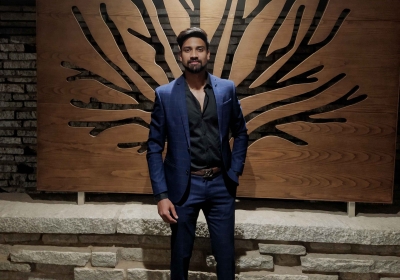CEDAR By Sonal Sonawani | Psychologist In Pune | Therapist | Interview With TheTalkStreet
Sonal Sonawani, a highly esteemed Psychologist and Therapist, brings over a decade of experience to her practice in Pune and Mumbai. As the visionary founder of CEDAR (Center for Depression Anxiety Relationships) and an esteemed International Affiliate of the American Psychological Association, Sonal's expertise is widely recognized. Her outstanding contributions have been honored with the prestigious Indian Achievers Award.Throughout her career, Sonal has dedicated herself to helping individuals heal from trauma, depression, and complex relationship dynamics. She has worked with over 10,000 clients globally, making a significant impact on their mental health and well-being. Her passion for mental health advocacy has led her to write and speak extensively on both national and international platforms, aiming to bring her work to a broader audience.
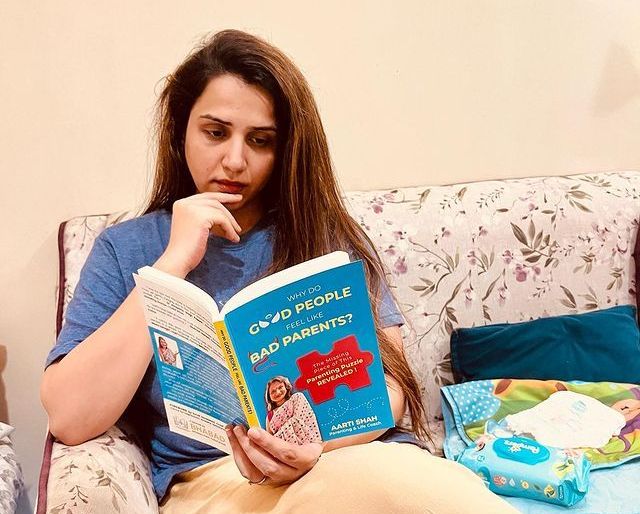
![]() Tell us about your background and what led you to pursue a career in psychology?
Tell us about your background and what led you to pursue a career in psychology?
Since childhood, I’ve been drawn to psychology and the study of the human condition, even though it wasn’t a popular or respected choice at the time. As a high achiever, many expected me to pursue a career in the sciences or business. I come from a family that doesn’t quite fit the mold, and I have seen depression affect several members of my family. It was assumed I would follow in my father’s footsteps—a clear, secure, and stable path. However, life had different plans. My family faced a series of crises that exposed us to the harsh realities of severe mental health issues. The most devastating blow came when my maternal uncle—a vibrant and joyful man who had recently become a father, tragically ended his life. We discovered too late that he had been suffering from clinical depression and was on medication. The regret of not knowing, not acting, haunted us all.
That was my wake-up call. I realized that there were many more like my uncle who needed help but were suffering in silence. Instead of following the expected career paths, I made it my mission to understand the complexities of the human psyche, to learn why people reach such depths of despair, and how we can prevent it. Over the last 13 years, I’ve been privileged to assist over 20,000 individuals, and my goal with my book is to extend that support to millions. My organization, CEDAR Beyond Therapy, has been a pioneer in mental health work, and it stands as my tribute to my uncle’s legacy.
![]() What areas of psychology do you specialize in, and what drew you to those specialties?
What areas of psychology do you specialize in, and what drew you to those specialties?
My expertise lies in suicide prevention, depression, anxiety, and relationship issues, which is reflected in the name of my organization—CEDAR, the Center for Depression, Anxiety, and Relationships. These three core issues often drive individuals towards suicidal thoughts, making them the focus of our work. Currently, CEDAR supports many individuals grappling with depression and anxiety, while I have personally taken on the challenge of addressing relationship issues. In India, the field of relationship or couple/family therapy is still emerging, and there is a significant shortage of well-trained professionals in this area. Many of life’s deepest pains stem from heartbreak, loneliness, abuse, disconnect, or discord, which drew me to specialize in relationship healing. I’ve spent over a decade studying and practicing in this area, and now I’m beginning to write about it, hoping to reach and help even more people.

![]() Can you share a bit about your educational journey and any key experiences that shaped your career?
Can you share a bit about your educational journey and any key experiences that shaped your career?
I hold a Master's in Psychology from Fergusson College and was a rank holder at Pune University. My career began in an organizational strategic solutions company, but I eventually shifted to clinical psychology.My journey at ACE started as a remedial educator, and I quickly advanced to Regional Head of Pune and then to Head of Training, Research, and Development. As the head of R&D, I played a crucial role in developing software for psychometric testing, which was a major milestone in my career.
This experience marked a turning point in my career, as it opened my eyes to the potential synergy between technology and psychology. I learned to write algorithms and gained an understanding of programming languages, skills that are now integral to my work at CEDAR. Today, CEDAR is committed to merging technology and psychology, particularly in the realms of suicide prevention and relationship counseling. Our goal is to create accessible mental health tools and programs that can be easily accessed via digital platforms. While we’ve made significant progress, we are still on the lookout for the right opportunities to bring these innovative solutions to a wider audience.
![]() What are some common misconceptions about psychology and mental health?
What are some common misconceptions about psychology and mental health?
One of the biggest misconceptions about mental health services is the belief that they are only for "insane" people. This is far from true—counseling and therapy are valuable for everyone. We often become so immersed in our own thoughts and perceptions, even in response to simple life struggles, that we develop personal philosophies that can be harmful. For example, someone with a broken heart might come to believe that all relationships are bad. Unfortunately, many of us live with these distorted views, which can cause more struggles.Therapy isn’t just about “treatment”; it’s preventative, cathartic, and helps to provide clarity and shift perspectives.
Another common misconception is that psychologists can "read minds." We can’t. While we are trained to observe expressions and micro-expressions to understand emotions, truly understanding someone requires a lot of conversation and detailed analysis. It’s not just a matter of instant mind-reading; it’s an energy-intensive process.
Another myth is that therapy will solve all your problems. Therapy is actually about exploring yourself and making decisions about your life, with the therapist acting as a non-judgmental guide. They use tried-and-true, well-researched methods to support you along the way. It’s a journey that can be life-changing and deeply insightful and I encourage everyone to try it at least once—you’ll be amazed at the insights you gain.

![]() Can you describe your approach to therapy and the techniques you use with clients?
Can you describe your approach to therapy and the techniques you use with clients?
In therapy, I believe in using a psychodynamic approach combined with cognitive therapies, as I’ve found this mix to be most effective for my clients. Every client has different needs and responds uniquely to each technique. My strategy involves first digging into the root of the client's thoughts, emotions, and experiences to identify the underlying issues. I aim to help clients connect with these sources through their own insights, equipping them to do the same independently. From there, I provide guidance on making changes that fit their specific situation, considering their emotional development and readiness. Flexibility within a structured framework is key, as no single method works for everyone.
![]() What are some key signs that someone should seek help from a psychologist?
What are some key signs that someone should seek help from a psychologist?
If you’re feeling low, anxious, stressed, unsettled, or dealing with issues like low self-esteem, sleep disturbances, or changes in behavior or personality for more than 2-3 weeks, and your usual coping strategies aren’t helping, it’s important to seek the help of a psychologist right away. Acting promptly is crucial, as these symptoms can worsen or manifest in other ways, potentially leading to a longer and more complex therapy process.
![]() How can people better understand and manage their mental health on a daily basis?
How can people better understand and manage their mental health on a daily basis?
Self-awareness is key to managing emotions effectively. Reflect on your feelings at least once a day to build this awareness. Maintaining good mental health also requires a healthy diet, regular exercise, and staying hydrated, as many mental health conditions are linked to vitamin deficiencies and physical symptoms. Daily meditation for 15-20 minutes can help reduce stress and achieve peace of mind. By incorporating these three habits—self-reflection, physical care, and meditation—you can better manage your mental health.
![]() Can you tell us about your book “Breaking Point”? What inspired it?
Can you tell us about your book “Breaking Point”? What inspired it?
My book Breaking Point focuses on toxic relationships, a major cause of suicidal ideation and attempts. Seven years ago, when I started CEDAR, our main focus was on suicide prevention. After handling over 7,500 cases personally, we discovered that about 85% of them were related to relationships, with 65% linked specifically to toxic relationships and loneliness.
While abusive relationships are often obvious, toxic relationships are much harder to identify and escape, leading many to fall into repeated patterns of unhealthy dynamics. This realization led me to further my education in this area, and I began working with 30 clients using Jungian psychodynamic psychotherapy, achieving significant success in breaking these patterns.
Breaking Point is written in simple language for those stuck in cycles of bad relationships, providing guidance on understanding and escaping these patterns. It serves as an introduction to this area of work, and I am continuing to write more books to expand on these concepts.
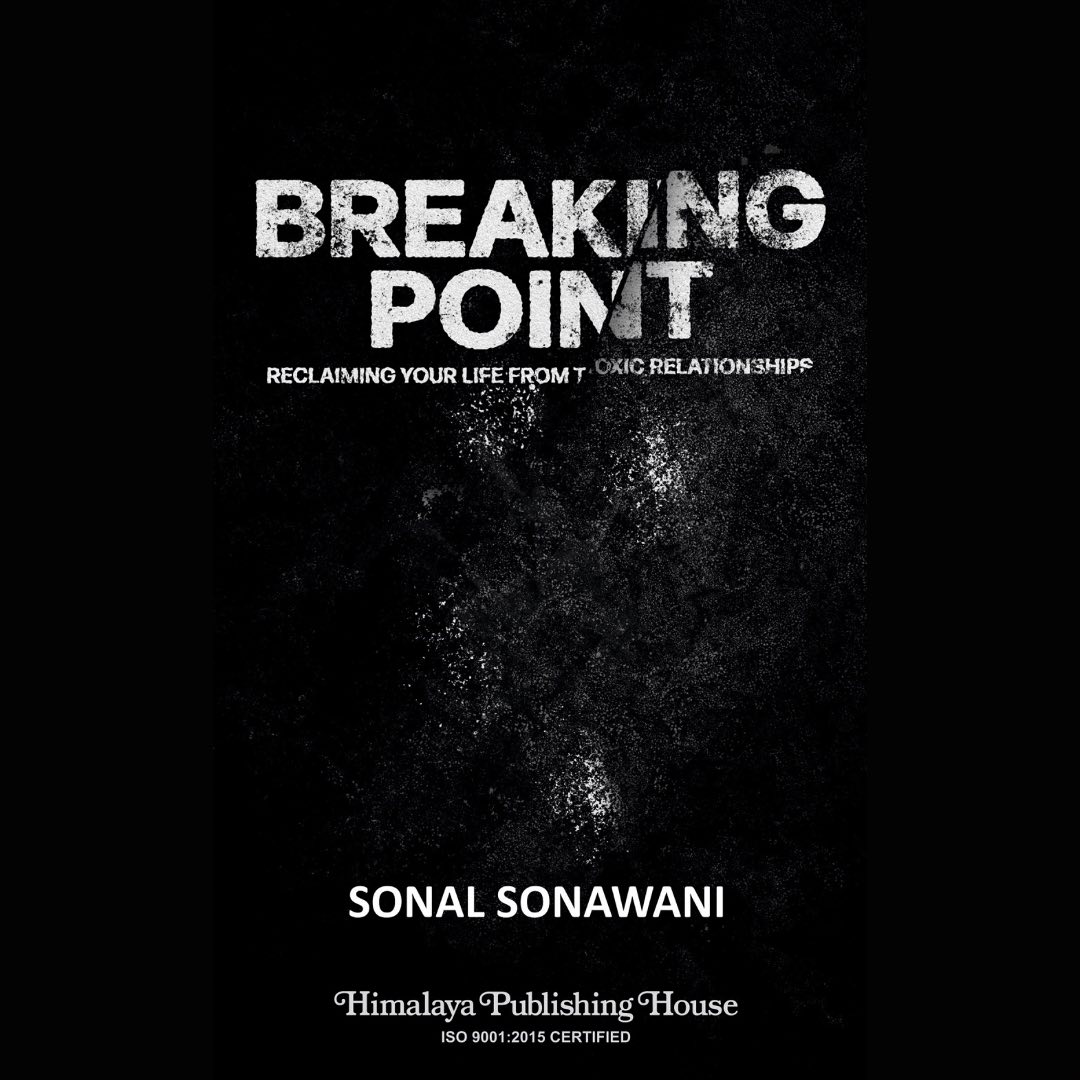
![]() What are some of the biggest challenges you face in your practice, and how do you address them?
What are some of the biggest challenges you face in your practice, and how do you address them?
The biggest challenge in my practice arose when I became a mother. Balancing work and parenting has been demanding, but both roles are important to me. I took only a three-week maternity leave, as I was deeply committed to my clients and my organization. Initially, I kept my daughter away while working, but soon realized she should see her mother working and learn about boundaries. From two months old, she was allowed to be in the same room during sessions, and clients have been supportive. Now at three years old, she engages in independent play, respects work boundaries, and occasionally makes a brief appearance in my online sessions, delighting my clients. This journey taught me that family and work can coexist, and with a little effort, one can find a good balance in life.
![]() How do you maintain your own mental health and well-being while helping others?
How do you maintain your own mental health and well-being while helping others?
Talking to people daily about their struggles can be emotionally draining, especially when dealing with traumatic cases. To maintain my mental health, I meditate regularly, especially with twin-heart meditation, which helps me recharge, protect my energy, and disconnect. Spending time with my daughter brings me immense joy and fills my life with positivity. Meaningful conversations and quality time with my husband, who is my strongest support, also help. Additionally, I attend therapy regularly to manage my emotions and ensure that my clients' experiences don't spill into my personal life.

![]() Can you describe your writing process, from the initial idea to the final draft?
Can you describe your writing process, from the initial idea to the final draft?
I've rewritten my book four times, inspired by my father, a renowned Marathi author who has written over 100 books. I began by planning the book’s structure in a sketchbook, meticulously organizing my thoughts and research. Turning this structure into engaging text was challenging, especially since the book, aimed at young adults, initially spanned 240 pages—too long for a busy audience.
To connect with the Indian readers' love for stories, I incorporated real-life narratives to illustrate complex concepts. This approach helped me keep the book engaging and concise.Writing, editing, and rewriting took almost a year, especially with my baby, who was just a year old and required a lot of my attention. Despite the challenges, this journey has been incredibly exciting and rewarding.
![]() How do you balance the demands of your professional and personal life?
How do you balance the demands of your professional and personal life?
People frequently discuss time management as the key to balancing work and personal life, but I believe energy management plays a vital role as well. Managing energy means channeling it into meaningful pursuits and continuously uplifting it through virtues like love, compassion, forgiveness, and patience. This practice naturally increases our capacity to handle tasks and minimizes feelings of fatigue. Embracing energy management has allowed me to balance professional and personal demands effortlessly, benefiting not only myself but also my family, colleagues, and clients.
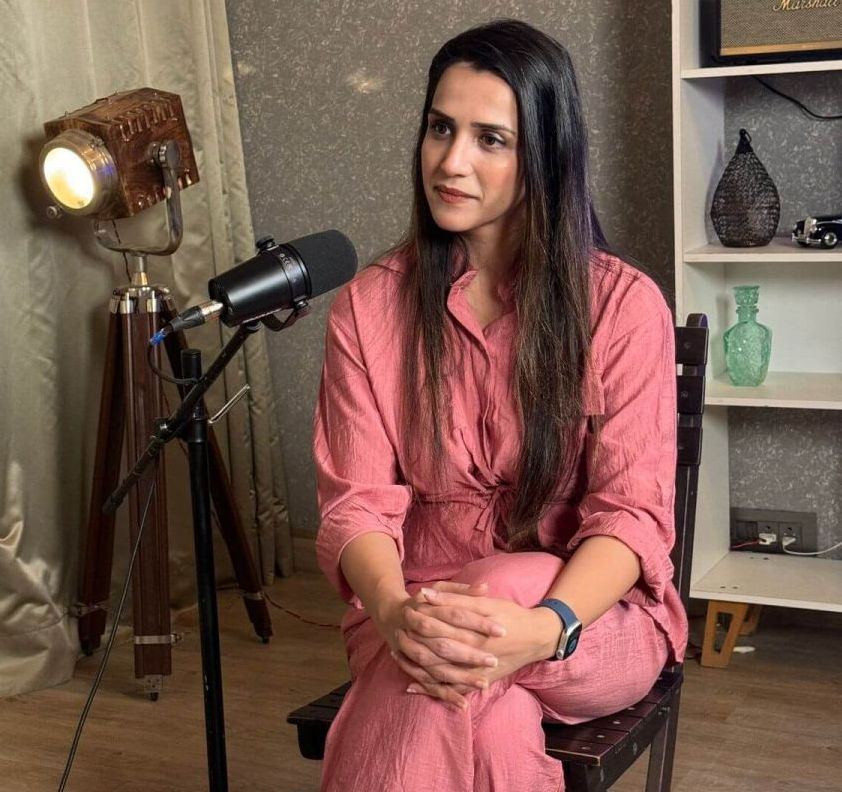
![]() What have you learned from your clients over the years?
What have you learned from your clients over the years?
The lessons I’ve learned from my clients are profound enough to fill an entire book. The most crucial lesson is the humility to accept help. It’s not easy to open up to a stranger, trust them, and acknowledge personal flaws to enable change. My clients have shown me how to embrace help and trust others without judgment.
Additionally, I’ve learned about the necessity of patience and handling frustration. Therapy isn’t a straightforward journey; it’s filled with obstacles. When progress is interrupted, it can be frustrating. Yet, my clients show remarkable patience, treating each roadblock as a milestone towards overcoming their challenges.
Lastly, allowing someone to probe deeply into your thoughts and emotions requires immense courage. The process can be intrusive if not approached with care. I greatly admire the bravery of my clients who permit this deep, gentle exploration of their vulnerabilities.
**********************
TheTalkStreet is an innovative online digital magazine that amplifies the voices of Entrepreneurs, Bloggers, Celebrity, Startups, Trend setters, Influencers, Peoples, Social empowerment and more. Through our website and social media platforms, we share compelling stories and conduct insightful interviews to connect with our diverse audience. Additionally, we strategically run advertisements across various platforms to help you generate valuable leads.
Embrace the opportunity to showcase your journey, achievements, and vision, establishing you & your brand as a leader in your industry. Join www.thetalkstreet.com , to inspire, engage, and connect with a global community eager to embrace innovative ideas and transformative experiences.
If you have a compelling story to share with our readers, please reach out to us at hello@thetalkstreet.com We will carefully evaluate your submission and may extend an invitation to feature it if it meets our publishing standards.


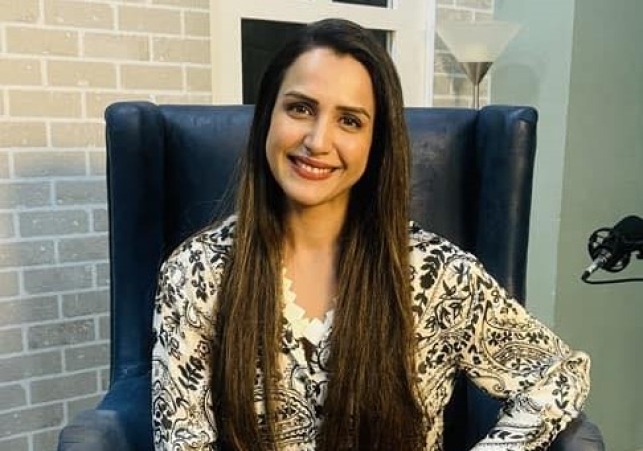


-(1).jpg)
